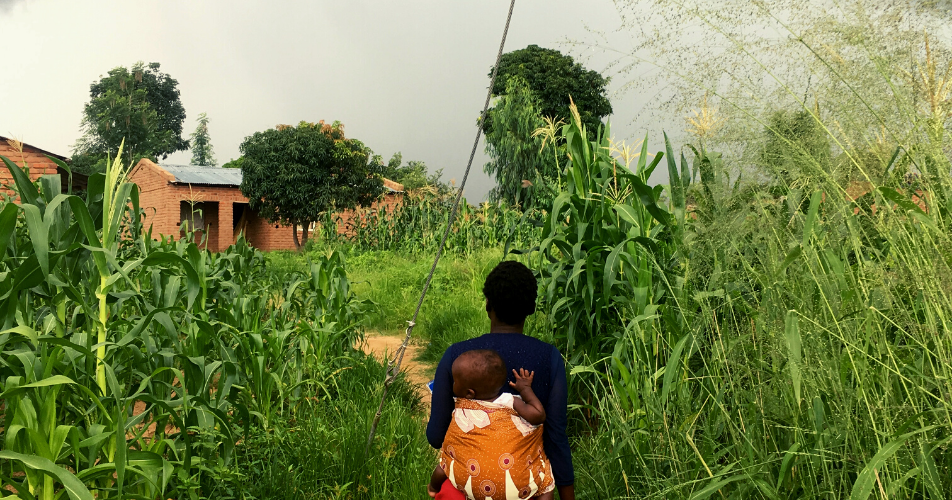When I was researching my book The Spirit of Malawi, one theme popped up in every formal interview and informal conversation – corruption.
At first I was nervous of raising the thorny issue. After all I had secured my interviews on the basis that I was approaching my subject – Malawi – in a positive way.
“I don’t want to write about starving children, conflict, corrupt leaders, the usual cliches about sub-Saharan Africa”, I assured people. “I want your personal testimony to show what contemporary Malawi is really like”.
But in interview after interview the ‘c’-word cropped up, whether chatting with leading political scientist Henry Chingaipe in his Lilongwe office, or woman’s activist Maggie Banda on the road to Blanytre.
Henry and Maggie both insisted that corruption is a major threat to Malawi’s development. “I know of no public sector in the world that has been as wasteful as ours. Up to one-third – and this is a very conservative estimate by the Auditor General – 33 per cent of the national budget was “wasted” through theft and corruption,” Henry said. He is convinced that, until President Chakwera’s election in June 2020, there was a conspiracy among senior figures in the government to maintain a ‘slush fund’ of national resources, ripe for plunder.
He explained how the system made it relatively easy for corrupt officials to siphon money from the public purse. “The figures the Finance Minister used for government revenue were always estimates and these were not based on the actual tax collection of recent years. The Auditor General audits government expenditure, but not revenue.”
Maggie, the founder of WOLREC, an NGO that campaigns for legal, social and economic justice for poor women, told me that corruption is one of the biggest threats to Malawi’s nascent democracy.
“Corruption has got worse since multi-party democracy,” she said. ‘It is really difficult for people to get services from government. Every public service that people need is a hassle. There are even allegations that when people go to government hospitals, sometimes they are told to pay something so that they can be assisted.
“When there are allegations of government ministers or public officials being involved in corrupt practices, we should see something happening.
“The government should be able to say what they are doing about it. They should institute an investigation, come up with a report and tell us, the nation, that we have investigated the allegations, and this is what we have found. Then the public would be able to judge correctly whether there was corruption or not, but hiding everything, the names, what they were involved in, it raises a lot of suspicions.”
I reminded her of this conversation a few days ago when we were discussing recent revelations that there were no records to show how 6.2b kwacha (£5.8m) of Covid-19 funds had been spent.
“Can you imagine,” she said. “People abusing money meant for the pandemic. It is terrible”. But she praised President Chakwera’s tough, transparent approach.
Two weeks ago, Chakwera, who has been in office for less than a year following a re-run of the 2019 presidential elections, fired the head of the disaster management department and the co-chair of the country’s Covid taskforce and suspended several officials “for failing to maintain proper records of how such critical funds were used and others for defying my directive to submit reports weekly to my office”.
And he promised a full forensic audit and an independent investigation, as a matter of urgency.
Corruption is not unique to developing countries, far from it, but it can have a disproportionate impact on the population. We may wince at reports of Covid contracts going to friends of UK government ministers, but for every kwacha spent on “allowances” instead of PPE in Malawi, a life is put at risk.
It takes a long time to change an entrenched culture, and tackling corruption requires sustained, rigorous processes, with strong sanctions for those who bypass them. Good governance doesn’t come cheap either, and it requires a long-term commitment from every section of society, not just the politicians, but civil servants, the media, civil society, business and donors.
Just after I finished the final manuscript of my book, the Economist announced Malawi as its country of the year for 2020, as it was one of the few countries where democracy had grown stronger during the pandemic.
The recent revelations may suggest that the accolade was premature, but President Chakwera’s swift and tough response shows that Malawi seems determined to build on its new-found reputation.
“If we are going to root out the problem of waste, abuse and theft of public resources,” Chakwera said, “We must admit that these are behaviours that have poisoned our values as a nation and have corroded our entire government system.
Maggie Banda is cautiously optimistic. “We will see,” she tells me, “but it is progress.”
Susan Dalgety’s book The Spirit of Malawi tells the story of contemporary Malawi through the personal testimonies of Malawians. It is published by Luath Press and available directly from them, or from other booksellers


